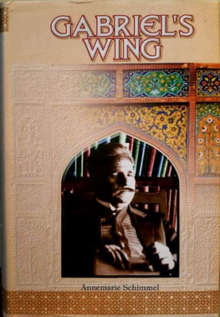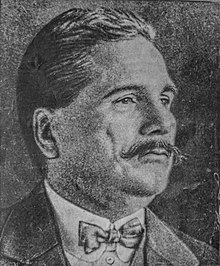|
Introduction
- Odes Part-I
- A blaze is raging near His Throne
- If the stars are astray
- Bright are Thy tresses, brighten them even more
- A free spirit I have, and seek no praise for it
- What avails love when life is so ephemeral?
- If my scattered dust turns into a heart again
- The world is tospy—turvy; the stars are wildly spinning
- O Cup—bearer! Give me again that wine of love for Thee
- My Lord has effaced the gulf between His world and mine
- Consuming fire for thee
- Dost Thou remember not my heart’s first rapture
- When flowers deck themselves into ruby bloom
- My power of making music
- I had believed my arena was under the starry heavens
- Reason is either luminous, or it seeks proofs
- O Lord! This world of Thine has a winsome face
- Odes Part-II
- Selfhood can demolish the magic of this world
- Who sings this poignant song, blithe in spirit
- The secret divine my ecstasy has taught
- O myriad–coloured earth
- Thou art yet region—bound
- The dervish, in his freedom
- The flowers are once more in radiant bloom
- Muslims are born with a gift to charm, to persuade
- It is love that infuses warmth into the music of life
- With a heart unknown to a flame
- The tongue and the heart
- These Western nymphs
- An illumined heart is supernal
- Selfhood is daring in power, but has no pride
- The leader is unworthy
- Winter winds pierced me like a sharp sword
- This ancient world
- The way to renounce is
- Reason is not far
- Selfhood is an ocean boundless, fathomless
- The morning breeze has whispered to me a secret
- Thy vision and thy hands are chained, earth—bound
- The only treasure reason has, is knowledge
- Alexander’s burnished throne
- Thou art not for the earth
- In bondage of space
- Reason has bestowed on me the eye of the wise
- My plaint at last evoked
- The sun, the moon, the stars
- Every object has the urge
- Is it a miracle,
- Why should I ask wise men about my origin?
- When the love of God teaches self—awareness
- Explore the mysteries of’ fate, as I have done
- This onrush of yearning
- Let thy reason be close to nature
- Alas! These men of church and mosque are known
- Reason has devised again the magic of ancient days
- Beyond the stars there are
- The West seeks to make life a perpetual feast
- Selfhood is Gabriel’s power
- Does freshness of thought
- As captured in a mirror
- Sufis lack the fire, the passion that consumes
- Intuition in the West was clever in its power
- Cut the Gordian knot
- Neither the power of kings
- New worlds will he conquered
- Arise! The bugle calls! It is time to leave!
- The crescent has surpassed
- Do not get engrossed In the dawning day and night
- The training grounds of valour
- Salman the mellifluous
- Kings and crowns and armies
- Stanza: The style may not he vivid and lively, still
- Quatrains
- All potent wine is emptied of Thy cask
- Make our hearts the seats of mercy and love
- Estranging are the ways in the holy precinct
- O wave! Plunge headlong into the dark seas
- Am I bound by space, or beyond space?
|
- I was in the solitude of Selfhood lost
- Confused is the nature of my love for Thee
- Faith survives in fire, like Abraham
- Observe the strains of' lily song:
- My nature is like the fresh breeze of morn
- A restless heart throb, in every atom
- Thy vision is not lofty, ethereal
- Neither the Muslim nor his power survives
- Selfhood in the world of men is prophethood
- Distracted are thy eyes in myriad ways
- The beauty of mystic love is shaped in song
- Where is the moving spirit of my life?
- I am not a pursuer, nor a traveller
- Thy bosom has breath; it does not have a heart
- Pure in nature thou art, thy nature is light
- Muslims have lost the passion of love they had
- Conquer the world with the power of Selfhood
- Dew—drops glisten on flowers that bloom in the spring
- Reason is but a wayside lamp that gives
- Give the young, O Lord, my passionate love for Thee
- Thine is the world of birds and beasts, O Lord!
- Thank Thee, O Lord, I am not without talent born
- He is the essence of the worlds of space and spirit
- Love is sometimes a wanderer in the woods
- Love seeks sometimes the solitude of hills
- Grant me the absorption of souls of the past
- It was Abul Hassan who stressed the truth
- This reason of mine knows not good from evil
- To be God is to do a million tasks
- So man is the powerful lord of land and seas!
- The mystic's soul is like the morning breeze
- That blood of pristine vigour is no more
- The movement of days and nights is eternal, fast
- Selfhood's apostate is the life of reason
- Thy body knows not the secrets of thy heart
- Stanza: Iqbal recited once in a garden in spring
- Poems
- A Prayer
- The Mosque of Cordova
- Spain
- Tariq’s Prayer
- Lenin before God
- Song of the Angels
- Ecstasy
- To Javid
- Mendicancy
- The Mullah and Paradise
- Church and State
- The Earth is God's
- To a Young Man
- An Advice
- The Wild Flower
- To the ‘Saqi’
- This Age
- The Angels Bid Farewell to Adam
- Adam is Received by the Spirit of the Earth
- Rumi and Iqbal
- Gabriel and Satan
- Azan
- Love
- The Star's Message
- To Javid
- Philosophy and Religion
- A Letter from Europe
- At Napoleon’s Tomb
- To the Punjab Peasant
- Nadir Shah of Afghanistan
- The Tartar's Dream
- Worlds Apart
- Cinema
- To the Punjab Pirs
- Separation
- Monastery
- Satan’s Petition
- The Eagle
- The Rebellious Disciple
- Stanza: Barter not thy Selfhood for silver and gold
- Stanza: The mentor exhorted his. disciples once
|

